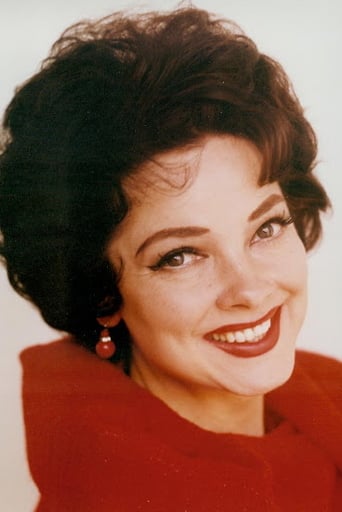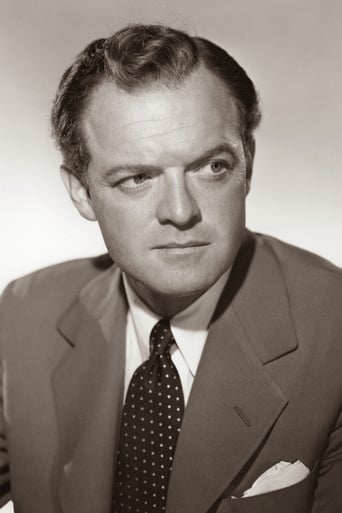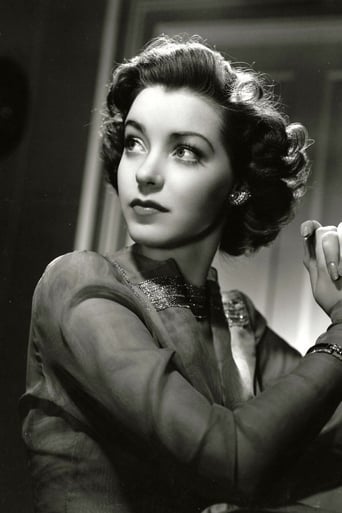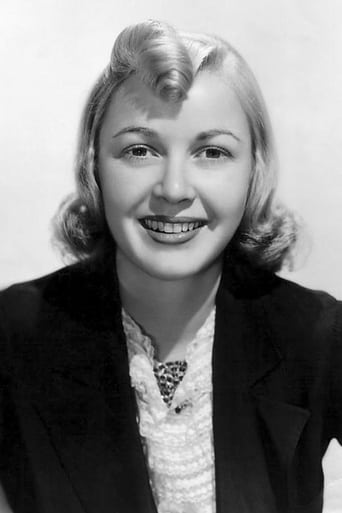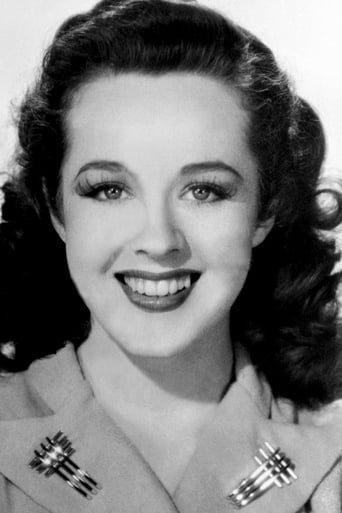WasAnnon
Slow pace in the most part of the movie.
AnhartLinkin
This story has more twists and turns than a second-rate soap opera.
Kien Navarro
Exactly the movie you think it is, but not the movie you want it to be.
Zandra
The movie turns out to be a little better than the average. Starting from a romantic formula often seen in the cinema, it ends in the most predictable (and somewhat bland) way.
JLRMovieReviews
The oldest daughter must marry first is the usual protocol in families. Who says so? Well father S.Z. Sakall does here. At least it's expected to happen that way. Marsha Hunt, as the oldest daughter, gives a very memorable performance as a diva who gets her way and thinks she's the center of attention and the Queen of Sheba. But when reporter and photographer Van Heflin comes to cover the tulip festival in this small Dutch community in Michigan, he falls for another daughter, played by the lovely Kathryn Grayson. And, what a voice. And, she sings some very creative and imaginative songs. There aren't a lot of well-known recognizable names or faces in this film, but it has fun, sweetness, and good music abound. I had never seen this before and was very pleased with it. Its cute and old-fashioned ways make the viewer feel good and more than make up for any flaws this film may have. I have no criticisms of it. This is a special place where time seems to stop and where there are no cares and when you think you're getting mad, you pull on your ear. (That usually works.) I could make a habit of watching this infectiously happy little film. You should too.
Aegleaphrodite
This story was set in Delft, Michigan and oddly enough resembles the tulip time in Holland, Michigan, unlike what was previously written, there are a lot of dutch families in Holland; There is few Spanish families there. This movie is cute, it doesn't lack any informality of its time, it delights in the old ways of the dutch. The characters are genuine and the set is typical of its era, it has the quality of film noir. A delightful classic that should be appreciated. It is Not desensitized by propaganda films or shoved into a shelf with out consideration for shadow, camera angles, and well played out script.
blanche-2
"Seven Sweethearts" is about a journalist who travels to Holland, Michigan to do a story about tulip time there and falls in love. The owner of the hotel has seven young, lovely daughters, all with men's names, who live in an isolated little world of clogs and tulips. One of them is pretty Billie (Kathryn Grayson) with whom the jaded reporter falls in love. All the girls, with the exception of the ambitious, cold Reggie (Marsha Hunt) have boyfriends and are aching to get married. But tradition states that the oldest girl must marry first.This movie seemed very long to me, strange, and somewhat boring. It's filled with B actors, with the exception of Heflin, Grayson, and character actor S.K. Sakall, who hands in one of the best acting scenes toward the end of the film when he has a confrontation with Billie. Grayson had a thin, fluttery coloratura soprano that nevertheless possessed some beautiful high notes and pianissimos, and she entertains throughout with songs and arias such as "Je suis Titania." She's good in her role. Heflin seems out of place but is quite likable.For those who don't know, the oldest girl marrying first was and perhaps still is a tradition in many cultures. The ending is cute, but this is still a cloying film, and it's hard to believe that this family had no relatives in Holland that they were concerned about during wartime. I suppose the idea was to take everyone out of the war for a while.
B24
Yikes! Sixty-some years after first seeing this movie as a child, I remembered only how cool I thought the bed in the wall was. Now that TMC is recycling it, no other positive memory comes to mind. I regret in a way having to rate it so low, but this really is a very flaky production even for the desperate years in which it was made.The first and most important fact to keep in mind if you have the good fortune to view it is that it is a turkey masquerading as a fantasy. It cries out for deconstruction. Giving boys' names to the seven eponymous knockout beauties is a Freudian howler. Especially when the gals are matched with an odd assortment of young male actors who had somehow avoided the draft long enough to appear on this 1942 set. And the real Holland, Michigan today is to a large extent a Spanish-speaking community that reflects how quickly times change in the real world -- not that it ever was in the first place anything close to what this film fantasy conjures up. Indeed, the image of tulips and windmills seems calculated to stand in stark relief to the reality that was the Netherlands under the Nazi heel in 1942, ironically demonstrating that the generally pro-German neutrality in that country and in the real Holland, Michigan during the years between WWI and WWII was a fool's paradise.But enough of that. Baby-faced Van Heflin in his over-sized fedora playing the role of a hard-nosed photo-journalist seems in any event miscast. His best role would come a decade later in the movie Shane. And warbler Kathryn Grayson would later stand out in the classic 1951 movie version of Showboat.Even as sheer entertainment in its own time, this film is unadulterated escapism, worthy of no more than a glance by film historians.

